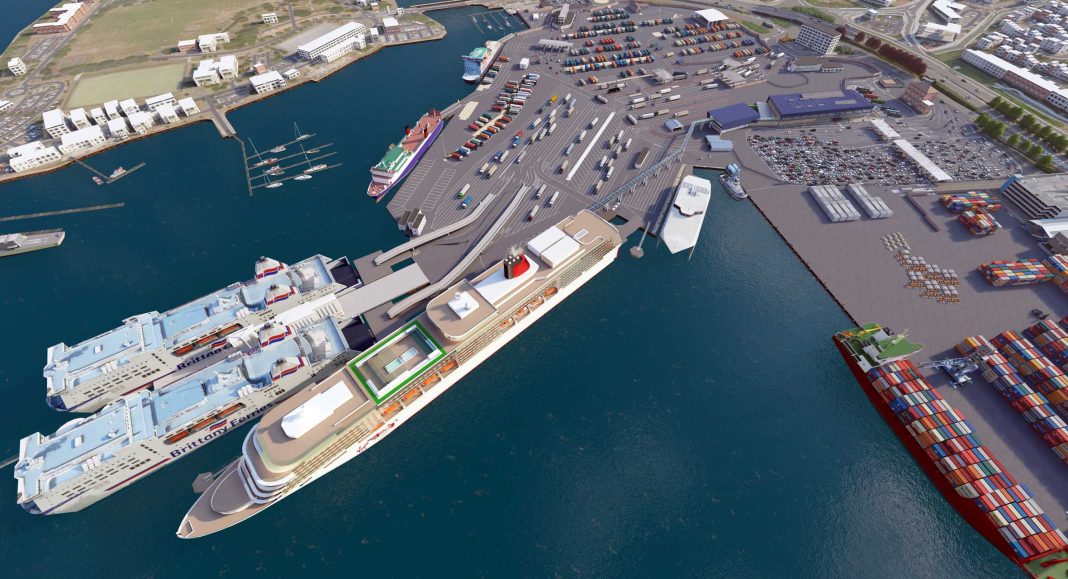Portsmouth International Port is looking beyond its boundary as it sets out an ‘ambitious sustainable future’ following the launch of its 20-year Masterplan on Wednesday 16 February 2022, which is expected to generate £739 million in ten years.
Global engineering and project management consultants Royal Haskoning DHV undertook detailed market analysis and extensive stakeholder engagement to forecast changes in the trade and travel industry.
The consultants identified a rise in containerisation and unaccompanied freight. To manage the additional growth advanced discussions are underway to establish a six-hectare pre-gate centre outside of the city, with comfortable driver rest facilities available.
Central to the plans is a focus on green recovery, as the port outlines its commitments to sustainability in a bid to become one of the UK’s most environmental ports.
As a result the port has developed a Masterplan that will focus on:
– expansion of port land to cater for increase in unaccompanied freight
– extension of berth to cater for ships up to 300m
– extension to 25m for ships exiting the port
– creation of out-of-city pre-gate and storage facilities
– smart technology to manage cargo and passenger flow
– sustainable infrastructure to manage alternative power demands
– achieve net zero by 2030
– facilitate a new electric ferry service
– upgrade facilities at international cargo terminal Portico
– new Border Control Post
The developments are expected to generate approximately £800 million for the national economy by 2042 and secure over 11,000 jobs following a £92m investment.
The Masterplan has identified central themes: environment and sustainability, society and economy, resilience and security, innovation and technology.
There will be a phased approach to projects, with the terminal building extension starting in the spring, running alongside the green initiatives such as an immediate win providing shore power for smaller ships by the summer.
The port will welcome Brittany Ferries’ Salamanca this spring, which is powered by LNG (Liquefied Natural Gas) and emits virtually no sulphur dioxide, nitrogen dioxide or particulate emissions.


